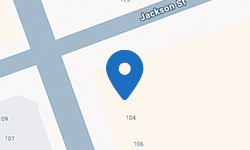Trespassing in New York: Know the Law
What It Means
Trespassing involves entering or remaining on property without permission. It doesn’t require breaking in or causing damage—just being where you’re not legally allowed.
Common Types:
- Entering private property or buildings without consent
- Staying in a business after closing
- Jumping a fence or ignoring “No Trespassing” signs
- Being on school grounds or restricted government property without permission
Degrees & Penalties:
- Simple Trespass (Violation): Up to 15 days in jail or fine
- Criminal Trespass in the 3rd Degree (Class B Misdemeanor): Up to 90 days jail
- Criminal Trespass in the 2nd Degree (Class A Misdemeanor): Up to 1 year jail (includes dwellings or school grounds)
- Criminal Trespass in the 1st Degree (Class D Felony): Up to 7 years prison (involving weapons or violent intent)
What Must Be Proven:
- You knowingly entered or remained unlawfully
- You had no permission to be there
- For higher charges: the property was a dwelling, school, or involved other aggravating factors
Common Defenses:
- You believed you had permission
- You didn’t know you were trespassing
- No clear signs or fencing
- Mistaken identity or being on public property










